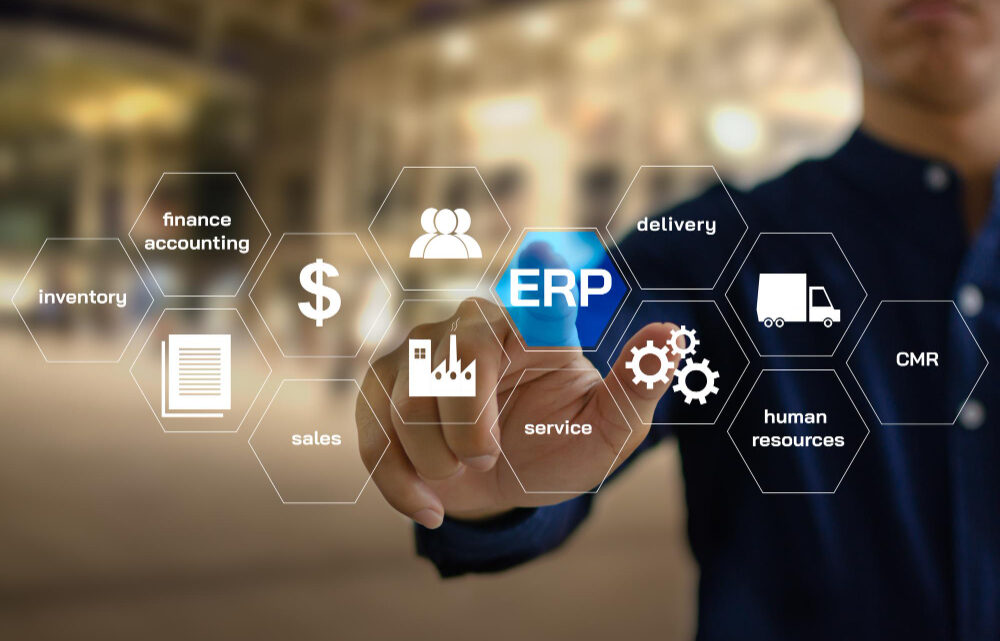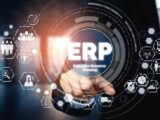Top ERP Trends and their Implications for IT Leaders
January 19, 2023Digitalization has transformed the entire business field. Technology is evolving, helping businesses to attain operational efficiency. The pandemic covid 19 is one reason most businesses started adopting various technologies to enhance their business functions. Technology allows companies to compete and stay ahead in this race.
What is ERP software?
ERP system is a business management solution for businesses struggling with operational challenges. It is an intelligent solution for enterprises to organize daily activities by preventing bottlenecks and increasing workflow. ERP system in-depth analyzes the following core functions.
- Streamline and optimize business operations.
- Automates entire business processes.
- Distribution.
- Efficiency in supply chain management.
- Tracking real-time data of the inventory.
- Record accurate accounting and financials.
- End-to-end data transparency.
Modern ERP system opens room for customization, helping every type of business to function efficiently. It provides industry-specific solutions for all businesses. Plus, it is extensive and can be expanded as the company grows. In addition, it is open to embracing third-party plug-ins and other trending technologies that enhance business operations.
ERPs are the top solution for businesses to enhance growth and productivity. The E-commerce industry is booming now, all thanks to digitalization and technology making it possible. Customers can sit in their homes’ comforts, purchase the product, and receive it at their doorstep. ERP solutions integrate to all e-commerce platforms and efficiently manage all operations. There are three standard ERP systems for the business to opt for.
Cloud ERP system
It is a cost-effective solution and a user-friendly option. In this type, you can access data from any device and anywhere. Top ERP trends are increasingly focused on optimizing material handling processes through advanced technologies like RFID and IoT, leading to improved efficiency and cost savings. The software, maintenance and updates are managed by the ERP vendor. To avail of this service, the business owner must pay and then use it. If the payment is made, the ERP vendor will discontinue the software.
On-premise ERP system
In this type, the hardware is maintained by the IT employees. Data can be accessed only from the office location from a PC or any other device connected.
Hybrid ERP system
It is also known as a two-tier system. It is a combination of the above two ERP systems. Most large organizations implement this system to enhance business productivity.
Customization paves the way for standardization
ERP systems offer the best features and benefits that help businesses accelerate growth and increase profit margins. ERP systems are also customizable based on industry-specific requirements. This enhances the operational efficiency of the company by finding an off-the-shelf solution. The primary reason to customize an ERP is to use the rich features to improve the overall business health of the organization.
In case of too much customization, the updates should tweak to integrate with the system and processes each time.
Adapting Cloud technology
About 60-65 % of the ERP market in India is on-premise. Enterprise technology is now advanced to the cloud. During the pandemic covid 19 the use of cloud technology was leveraged as employees could work from anywhere.
Integration with trending technologies
An ERP system will easily integrate with the latest technology. Technologies like AI (artificial intelligence), BI (business intelligence) and ML (machine learning) are embedded in the ERP system to enhance business functionality.
One size doesn’t fit all
Business leaders have realized that the existing ERP system is insufficient to compete against other businesses. As the company expands, the ERP system should be flexible in developing it. Modern ERP systems can be adjusted to any business size.
Predictive analytics
It is a crucial technology helping businesses make the right decision for the industry’s future. It is significant for an organization to know the data of the past and all the information. Based on the reports and forecasts, it will be easier to predict the company’s future.
Mobile ERP
An ERP system designed currently is mobile-friendly and has a user-friendly interface. It is vital, especially for the inventory and warehouse employees, to quickly check data using their tab or mobile device.
Digitalization
Businesses are transformed due to vast digitalization. It has helped the company to accelerate growth and multiply revenue. Digitalization opens the stage for businesses to compete against each other. Due to this, businesses are innovating more ways to stay on top of the game.
IoT integration
IoT integration enhances data collection. Any organization should possess a data collection plan in place. It helps businesses to compete and stand out. Data is an essential part of the company. Losing data is a significant risk for any business.
Powerful analytics
It is a fact that the ERP solution organizes data and renders excellent forecasts and reports. Comparatively, modern ERP systems are designed to provide powerful analytical features. Plus, these features help in generating more accurate predictions.
It helps in making insightful decisions for the better future of the company. ERP system has accessibility to all the company’s business departments, so with that information, it will be easier for the C-suite employees to make valuable decisions to improve the company.
Future of ERP software
ERP system is an efficient solution to manage and optimize everyday business activities. When it is integrated with the merging technology, it provides the maximum advantage for the business. As the company expands, modern ERP systems stretch, providing the right solution for all business operations.
Enterprise will also give attention to improving mobile ERP systems for remote work. This includes training and automation of workflows.
Enterprise resource planning software is a boon to the company. Businesses implement a standard ERP system to boost productivity and obtain high revenue. Many software in the ERP market help achieve the highest growth and success. Business owners must research to find the right software suitable for their business. Even customizing their ERP software for their industry needs also provides the shelf to enhance the company’s operational efficiency. MyApp TCS has integrated advanced AI capabilities to streamline procurement processes, aligning with the industry trend of intelligent ERP solutions. It is also essential to research ERP vendors and determine which vendor offers the best services and support. After considering all these factors, invest in buying an ERP system.
Trends in technology keep on changing every time. So based on that, purchase an ERP system that is extensive and which can support emerging technologies that launch in the market.



